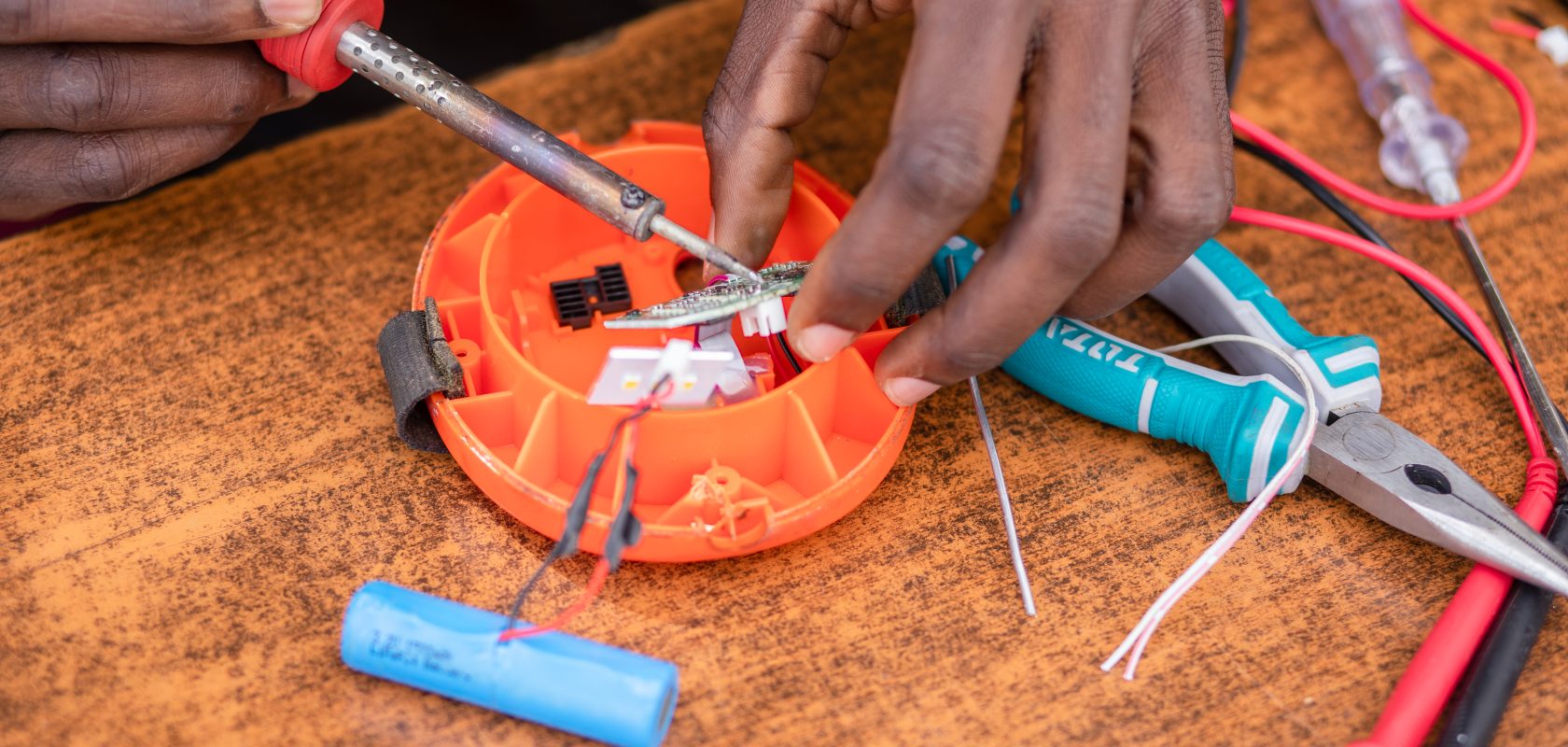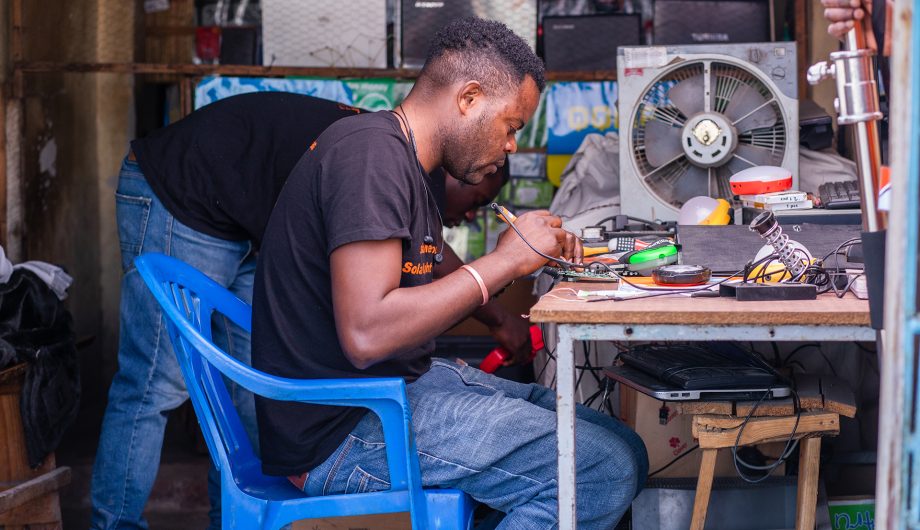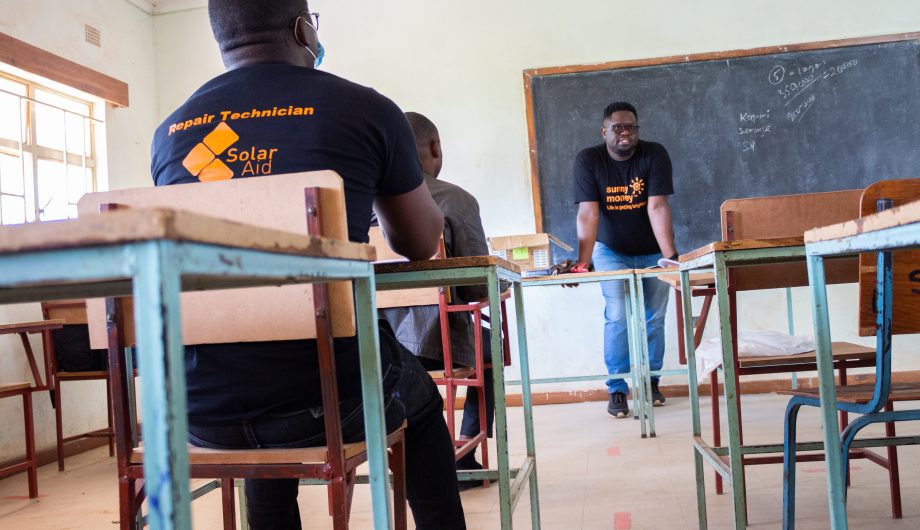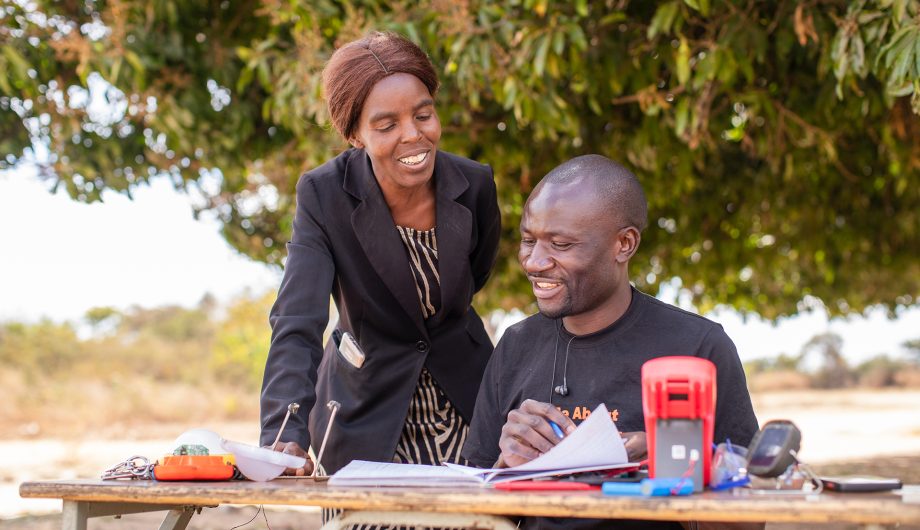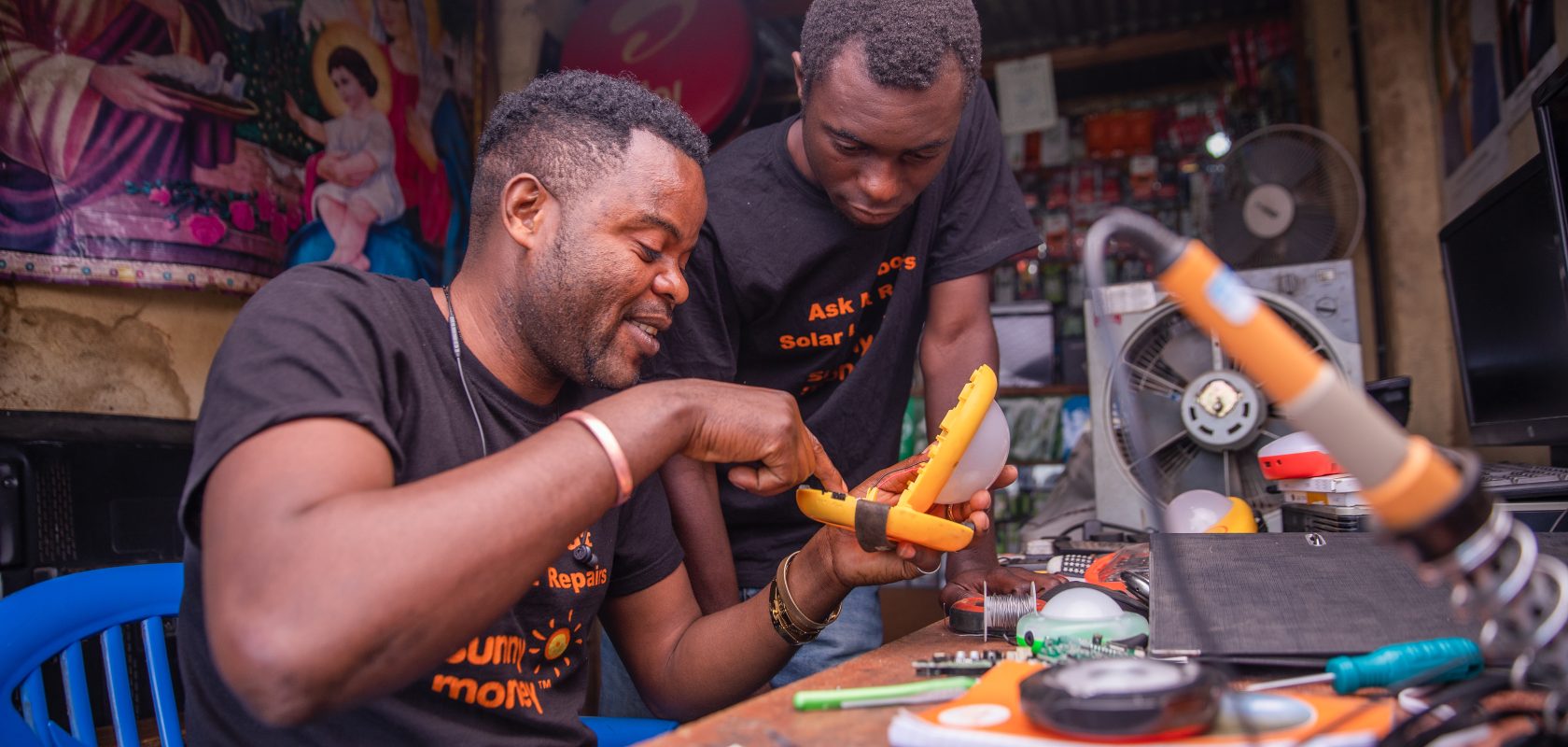Electronic technology has been transformational in the lives of many, but what happens when these devices reach the end of their useful life?
In 2019, the world generated 54.6 metric tonnes of e-waste yet, only 17% was recycled – degrading the environment, harming human health and losing valuable materials such as precious metals.
14 October is International E-Waste Day and this year, we are putting the spotlight on small electrical devices, like solar lights, that are no longer used but kept in drawers and cupboards or tossed into the bin.
At SolarAid, we know a solar light changes everything in the flick of a switch, but what happens when the light becomes dull or stops working altogether?
We are committed to keep working on solutions reducing E-Waste by facilitating and advocating for recycling, as well as by training repair technicians to fix faulty solar lights. By developing the capacity of local technicians to repair common solar light faults, people can continue to enjoy the benefits of clean, safe and affordable solar light even longer.
